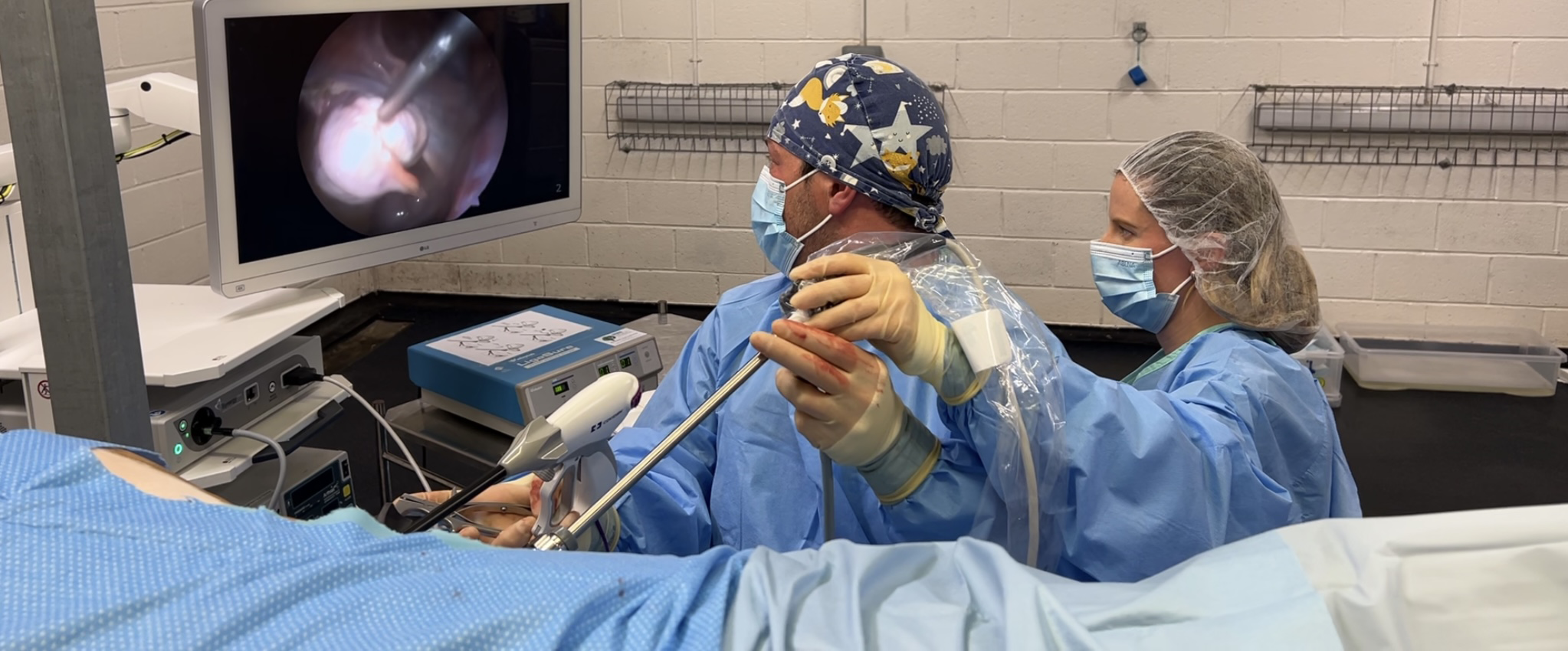This is a commonly seen condition caused by food material or foreign material blocking the oesophagus (food pipe) of the horse.
What causes choke?
Choke is usually caused by an obstruction of the oesophagus. The obstruction us usually due to food material (often dry, coarse material such as hay or unsoaked sugar beet ) which rapidly swells when it is eaten and gets stuck after it has been swallowed. We also see foreign bodies such as pieces of wood which can cause obstruction. Other conditions which affect mastication (chewing) or swallowing such as dental pain, sedation or injuries to the neck can also cause choke.
What are the signs of choke?
The most obvious signs of choke is food material and saliva coming out of both nostrils and sometimes the mouth. Some horses will panic and become agitated often squealing, coughing, gagging and tensing their neck muscles. If choke has persisted for some time horses can be dull, inappetant (off their food) and cough.
What to do if your horse has choke
Ideally phone the vet as the sooner the obstruction is cleared, the better for your horse. Take away food and allow access to water. If the condition goes un-noticed horses can breathe in food material which can cause serious lung infections. Never give your horse any water or lubricants by mouth/syringe/drench as this can be inhaled with serious consequences.
How do we diagnose choke?
Your vet will usually sedate your horse to help him/her relax and then pass a narrow tube into the oesophagus (via the nostril) This not only confirms the obstruction and where it is but also allows treatment if required. In more complicated cases an endoscope (narrow fibre-optic camera) is used and allows visualisation of the oesophagus and any underlying problem.
How is choke treated?
Some cases will resolve spontaneously on their own as the muscular contractions of the oesophagus along with saliva production, help push the obstructing food down into the stomach.
In many cases, the administration of a sedative will help prevent the horse from tensing and help with this. In other cases the obstruction is gently encouraged with the use of a stomach tube which is carefully done to avoid causing injury to the delicate tissues of the oesophagus. With some cases of choke such as a choke caused by eating unsoaked sugar beet, the obstruction is softened and flushed away by warm water passed down the stomach tube – this is undertaken carefully to avoid your horse inhaling any material and sedation is useful to keep the head position low to aid draining of fluid. Once the choke is cleared we generally advise feeding grass and soaked, sloppy feeds only for 1-2 days to allow any localised swelling to settle and prevent further episodes of choke.
How is choke prevented?
Regular dental care is paramount in ensuring horses can chew effectively and comfortably. Keep dry foods which require soaking well away from all horses and ponies and in a secure container.
Greedy horses which eat very quickly can be fed smaller and more frequent meals plus the addition of bricks in the feed bowl will slow the rate of eating. Hay/haylage can be fed from small holed nets.
Some horses with other conditions of the throat can also be predisposed to choke so please speak with your vet about your horse if you are concerned.


